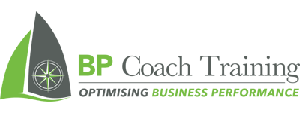Did you know ICF offers 3 levels of credentialing? And there are 3 pathways to acquire your credentials? Sounds confusing? You are not alone. We do get a lot of questions from aspiring coaches asking about the differences. Let’s demystify this once and for all…
ICF Credentials
International Coaching Federation, ICF offers three levels of credentials:
- ACC (Associate Certified Coach)
- PCC (Professional Certified Coach) and
- MCC (Master Certified Coach).
Like any other credentialing bodies, there are training and practical skills experience requirements for one to qualify for each of the credential. The main differences between the three levels of credentials are shown below.
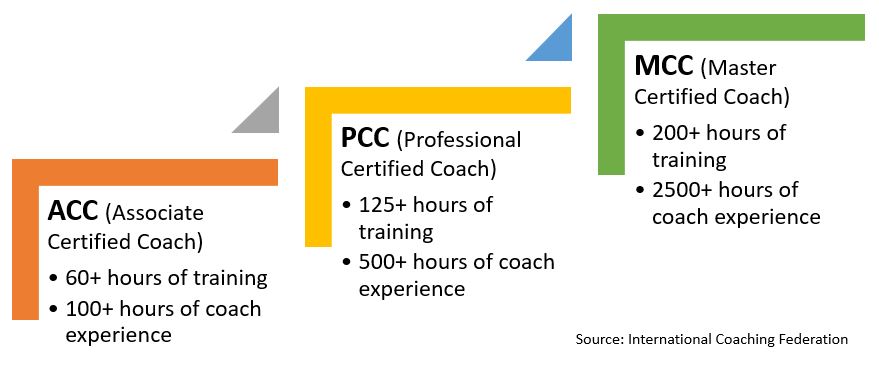
ICF Pathways
Everyone of us have our own learning preferences. As such, ICF offers three different pathways for potential applicant to choose from. The three ICF pathways are: (please see updated ICF credentialing pathways wef. 1 January 2023).
- ACTP (Accredited Coach Training Program) Path
- ACSTH (Approved Coach Specific Training Hours) Path
- Portfolio (through Continuing Coach Education CCE) Path
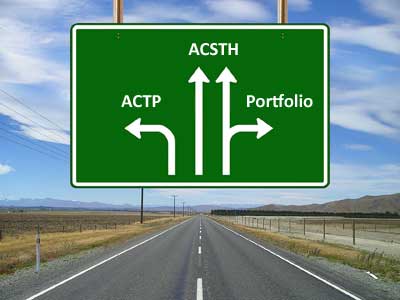
ICF ACC Credential Requirements
Before we go into the details of what each path entails, let’s take a look at the requirements for the first level of ICF ACC credential. Essentially, every applicant has to complete the following to receive his or her ACC credential.
- Complete a minimum of 60 hours of coach-specific training
- Complete 10 hours of mentor coaching
- Clocked 100 coaching hours (75 hours must be paid-coaching, 25 hours can be pro-bono coaching) – no time limit
- Performance evaluation (one audio recording and written transcript of a coaching session to be uploaded with your application)
- Complete an online Coach Knowledge Assessment, administered by ICF Global
- Receive ICF ACC credential upon successful completion
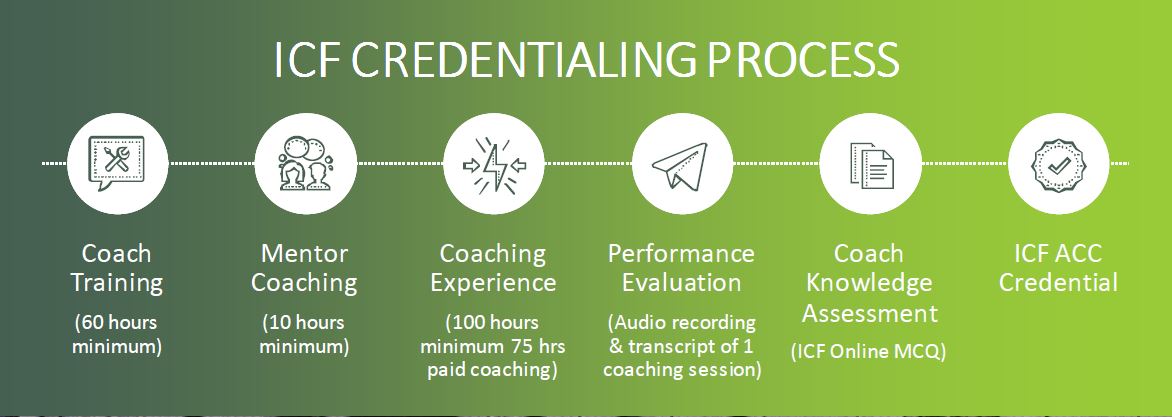
Which credentialing path should one take?
Training providers may offer a variety of programs that are accredited by ICF. Some training providers may only offer one path e.g. ACTP path. In this case, if you choose that training provider, you will only follow that ACTP path. Others may offer multiple options. In other words, the training program that you choose determines your pathway. However, many aspiring coaches may not realise this upfront.
Of course, everyone of us has different criteria when it comes to choosing the training provider. This might range from cost, quality, program structure, flexibility, facilitator’s experience, recommendations etc. The pathway is usually not one of the criteria being considered unless you are aware of it upfront.
Let’s take a look at the different pathways for the ACC credential.
ACTP Path
The ACTP program is considered an “all inclusive” program which offers:
- Minimum of 125 hours of coach-specific training
- 10 hours of mentor coaching
- Performance evaluation (at least one audio recording and transcript evaluated at the PCC level)
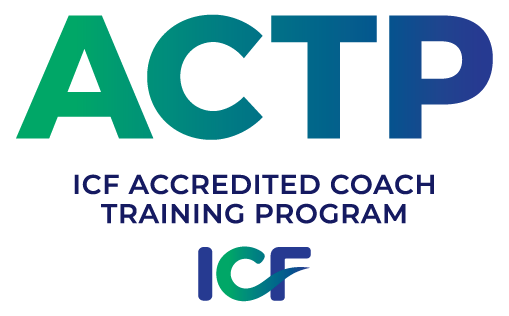
But wait – why would someone want to pay extra and spend a minimum of 125 hour of coach-specific training when you only need 60 hours for ACC credential? Well, I guess if you have already decided you want to pursue all the way to PCC credential, then it’s ok. That’s what the ACTP program is structured for. Some ACTP training providers do offer you the option to complete halfway and revert to the ACSTH path. Just make sure you check with your training provider upfront.
The advantage of the ACTP path is that it takes care for you Steps 1, 2 and 4 of the credentialing process mentioned above. You would not need to submit the audio recording and transcript to ICF global during your application as you would have done so with your training provider. Regardless, you would still have to complete all the steps whichever path you take.
ACSTH Path
If you are looking for an “a la carte” training program, the ACSTH path would be a good option. ACSTH program covers all the necessary coaching competencies aligned to ICF, and at the same time offer some flexibility on your end.
- Minimum 60 hours of coach-specific training
- 10 hours of mentor coaching (optional depending on training providers)
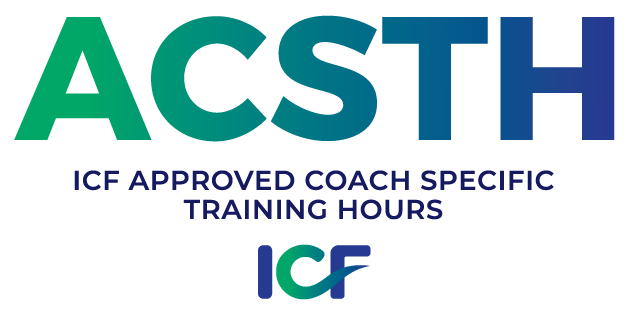
The advantage of the ACSTH program is that the training provider would have packaged all the ICF coaching competencies required for credentialing. Unlike the Portfolio path (which we will cover next), the applicant does not need to worry if the courses that he has taken covers all the mandatory competencies. Moreover, there is only one certificate that needs to be submitted during the application.
Applicants have the option to find their own mentor coach if the training provider does not include mentor coaching as part of the ACSTH program. In short, the ACSTH program would cover Steps 1 & 2 of the credentialing process. Applicants will have the flexibility and time to complete the rest of the process on their own.
Portfolio Path
Finally, aspiring coaches who prefer to take modular courses from one or more training providers can choose the Portfolio path. These modular courses may consist of programs approved by ICF under the Continuing Coach Education (CCE) program or from non-approved ICF coach training.
- Minimum of 60 hours of coach-specific training from multiple courses.
- Need to demonstrate the accumulated courses cover all the ICF coaching competencies required for credentialing.
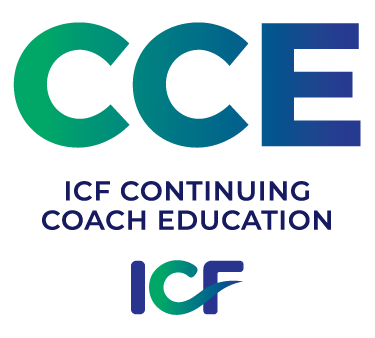
The Portfolio path offers lots of flexibility for learners to acquire the coaching skills over time from different training providers. They are not restricted to the program schedule mandated by most ACTP or ACSTH training providers. They would also have the flexibility of choosing their own mentor coaches as well.
On the other hand, applicants need to submit multiple certificates during application. For each module, they would have to indicate which ICF coaching competencies are covered. This might pose a challenge for new coaches who may not be well-versed with the ICF coaching competencies, unless they seek the help of the training providers. In short, while Portfolio path offers the greatest flexibility, the application process is more cumbersome. Ultimately, Portfolio path covers only Step 1 of the credentialing process.
Conclusion
We hope that this has helped you to demystify the difference between ICF credentials and the different ICF pathways.
To learn more about our Coach Certification Program (ACSTH) or CCE (Portfolio) courses, please contact us or email us at info@bpcoachtrain.com.
Written by Laurence Tan (Leadership Coach/Trainer and Author)
Director, BP Coach Training Pte Ltd
